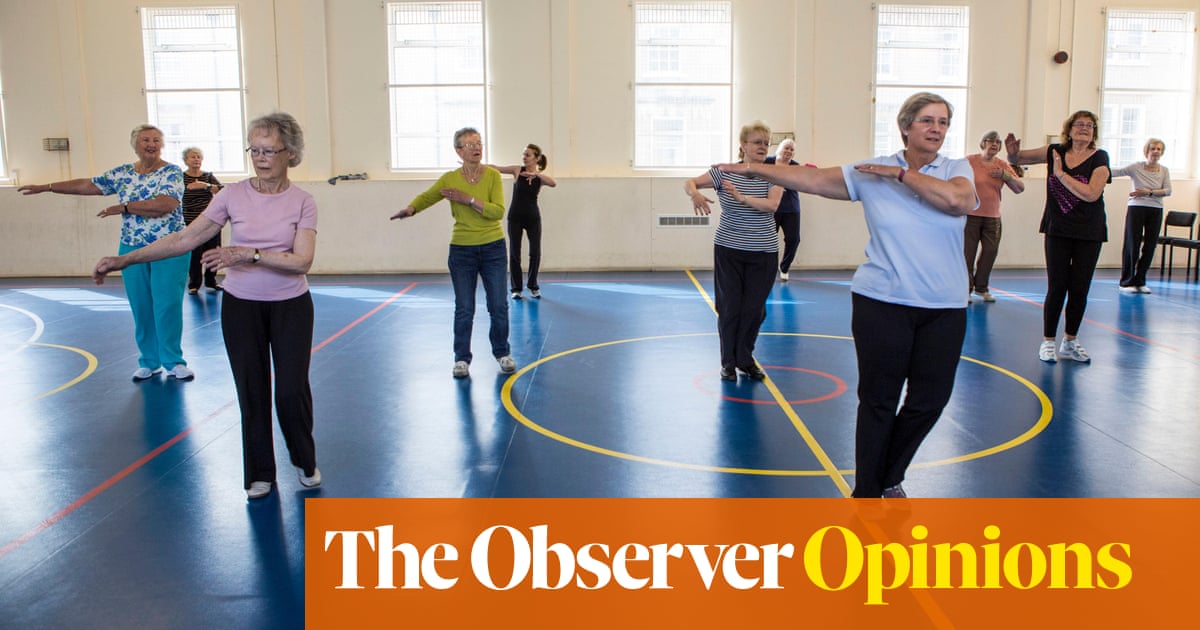Recently, whenever I pay a visit to my mother, she’s frequently unavailable, citing her presence at rehearsals through text messages like, “Come back after 5 pm. Or another day.” Engrossed in a community choir, she seems to have embraced a new lifestyle, occasionally extending her outings to the pub, leaving me uncertain about her return time. On occasions, she leaves out a plate of falafel, anticipating my fridge-raiding visits, akin to a reverse Santa Claus, albeit the fare tends to be disappointingly dry.
At 80 years old, she has embarked on Laban dance classes, continuing her participation in a drum circle while delving into the realm of urban opera singing. For her, engaging in artistic endeavors is instinctual, pursued for the sheer pleasure they bring, all while balancing a job. In stark contrast, I’ve molded writing and performing into my livelihood; however, there’s a certain aspect of creative identity that can stifle itself. Without the validation of an agent, an audience, a platform, or a deal, I struggle to perceive the merit of my creations. Unlike my mother, who finds fulfillment in the process itself, I’ve conditioned myself to only write for compensation, harboring dreams of retirement.
She epitomizes avant-garde in every facet, a far cry from my disposition. I reminisce about the days when she would warmly welcome me with creatively crafted dishes like “Spinach soldiers on speedboats” – vegetable croquettes perched on half a baguette with omelette netting. Her culinary repertoire included daal infused with chewy mango sourced from snack packs. I recall her ambitious culinary experiment involving a perfectly spherical meal, featuring a portobello mushroom stuffed with lingonberries, nestled within a bisected English muffin and meticulously resealed. She was on the brink of creating a Euclidean turducken before moving on to new endeavors.
While she explores new horizons, I find myself retracting into a shell. During a lull in my acting career, I grapple with the fear of relegation to a mere hobbyist. What defines a true actor? Is it the frequency of performances, the skill level, or the financial compensation received? Does attending drama school equate to a form of tenure, providing a lifelong validation? Actors often battle insecurities, as their craft necessitates external validation to thrive. It’s not merely a profession but an existential crisis garbed in theatrical tights.
Motivated to both reconnect with my mother and unravel the mystery of urban opera, I attend one of her performances titled Our Street, crafted by the Lewisham Creative Chorus – a diverse ensemble transcending age, ethnicity, and backgrounds, surpassing the homogeneity of West End productions. The opening whisper, “Salus populi suprema lex esto” – “The wellbeing of the people is the highest law” – sets an eerie tone, evolving into a captivating chant culminating in one of the most stirring songs I’ve encountered. The performance weaves in heart-rending solos, puppetry, poetry, and snippets of Schubert. Witnessing my mother center stage, cradling a boy mannequin with palpable emotion, moves me to tears. I anticipated sweetness but was unprepared for the sheer brilliance of the production.
My preconceived notions of amateur dramatics, typified by retirees stumbling through The Importance of Being Earnest in a dilapidated town hall, are shattered. The disdain towards amateur performances stems from a hierarchical mindset ingrained in creative individuals, particularly those shaped by the Thatcher era, clinging to notions that assign value based on economic viability.
However, the landscape is evolving. The dwindling financial prospects in recent decades have laid bare the challenges inherent in pursuing a creative profession. The democratization of popular culture has ushered in a new era where amateurs wield significant influence – from TikTok comedians and Soundcloud musicians to YouTube makeup tutorials and home chefs. Social media serves as a conduit for talent to circumvent traditional gatekeepers, fostering a burgeoning pool of diverse creativity.
The surge in amateur ensembles like orchestras, choirs, and dance groups doesn’t warrant mere acknowledgment; it demands celebration. Contrary to competitive platforms like Britain’s Got Talent or The X Factor, where fame remains the ultimate prize, there’s a purity in performers driven by a sense of community and connection that resonates deeply. They bring real-life experiences to the forefront, transcending the contrived narratives often associated with professional productions. Art isn’t a contest or a frivolity reserved for the elite; it embodies our shared humanity, propelling us forward in times of adversity.
Inspired by my mother’s unwavering passion, I resolve to break free from my creative paralysis. She defines herself as an artist not by training or gigs but by embodying that identity in her everyday existence. Sitting down to pen a scene solely for personal gratification, I rediscover the joy and vitality of creation. In this moment, I realize that I am indeed my mother’s child. And now, I find myself yearning for a fulfilling meal.
